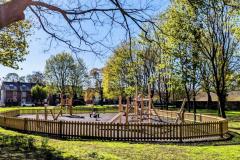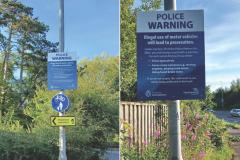
Wilmslow High School has been recognised as a model of excellence for their practice in anti-bullying intervention.
The policy, practice and resultant interventions were scrutinised and deemed by the Bullying Intervention Group (BIG) award as outstanding.
The anti-bullying policy was judged by the BIG CEO, who noted that the school's particular strengths include the systematic manner in which student services deal with any issues that arise and also the manner in which anti bullying is promoted both through regular staff and student updates and also through the curriculum.
Jon Maw, Head of Norcliffe, explained that the school does a number of things to tackle bullying within the community including: anti-bullying work with the student council and sixth form peer mentors; restorative justice work with trained members of staff. re-education packs for perpetrators and support packs for victims; anti-bullying record forms to track incidents with students; anti-bullying posters are used as screensavers on all school computers and anti-bullying assemblies are held regularly along with tutor group activities.
He said "The key to our success in developing these areas is including students, staff and parents in the processes and plans and ensuring that work takes place throughout the academic year and not just for one week during the officially recognised anti-bullying week.
Wilmslow High School was also recognised for the high quality provision on offer through the Wellbeing hub and Zumos, a system which the school implemented following a successful bid to the big lottery fund to help support the mental wellbeing of our students.
Developed by leading researchers from universities and endorsed by CAMHS (Child and Adolescent Mental Health Services), Zumos acts as an online support website for all areas of emotional health and wellbeing. Students can log on anonymously to the website and access whatever information OR support they require from listening to pre-recorded messages from professional counsellors that haVE passed a due diligence process, to support websites, videos or further readings.
Jon Maw explained "The school gets to see purely quantitative data on what students are accessing so that we can be proactive rather than reactive if a key group in school (e.g Year 8 girls) require specific support on a certain topic that we see been accessed regularly."








